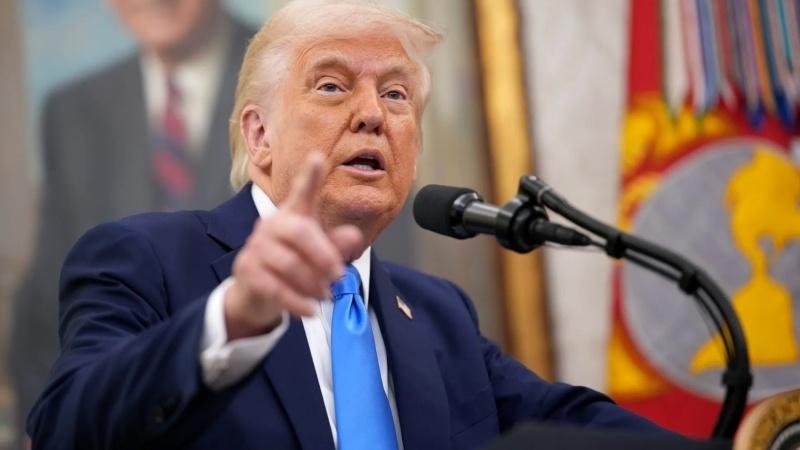
Recently, US President Donald Trump announced that he plans to impose a tariff of up to 50% on imported copper starting next month. This new policy has drawn widespread attention in the economic field. Especially in Minnesota, multiple industries, particularly the cannabis-related sector, are under pressure from rising costs.
The predicament of marijuana enterprises in Minnesota
Steven Brown is the founder of Nothing But Hemp, a cannabis company in Minnesota that focuses on the production and sale of cannabis-related products. Brown said that with the threat of the Trump administration imposing copper tariffs, his company is facing unprecedented cost pressure. To produce cannabis products like hard candies, Brown's enterprise needs to use copper containers to ensure precise control of production temperature. "Just a hard candy production device costs $3,000, and under the new tariff policy, the price could soar to $4,500," Brown said helplessly.
What troubles Brown even more is that, apart from copper equipment, his company also needs to import various raw materials, such as vanilla, mushrooms and packaging materials. Due to the frequent occurrence of rising tariffs and customs seizures, his enterprise is facing financial pressure that cannot be ignored. Our packaging is simply a nightmare. "We are facing far more difficulties than before," Brown continued.
Although Brown has not yet passed on these costs to consumers, he said that this move might soon become a choice that has to be made. If tariffs continue to rise, the increased costs will force him to raise product prices, thereby affecting consumers' purchasing power and market demand.
The cannabis industry is one of the rapidly growing industries in Minnesota in recent years. According to the latest data, even before marijuana was legalized, 34% of the state's residents aged 12 and above had already tried smoking marijuana. This indicates that although marijuana is still illegal in many states, consumer demand has increased significantly. With the advancement of marijuana legalization within the state, an increasing number of local enterprises have entered this market, driving economic development and job growth.
However, Trump's tariff policies and the uncertainty of the global supply chain undoubtedly pose challenges to this booming industry. Brown and other business owners have to deal with the constantly rising production costs, which may lead to price hikes in the future and thereby affect the overall competitiveness of the market and consumers' purchasing behavior.
The Trump administration claimed that imposing tariffs was to ensure fair trade, restore American manufacturing and protect national security. This position has received partial support at both the political and economic levels. Supporters believe that tariff policies help protect domestic industries, reduce foreign dependence, and thereby enhance the production capacity of the United States. However, the situation in reality is even more complicated. Many American enterprises that rely on imported raw materials and equipment, such as the marijuana enterprises represented by Brown, are facing huge cost pressure.
In today's globalized world, manufacturing and consumer markets are no longer confined by national boundaries. The close connection of the global supply chain makes any change in tariff policy likely to trigger a series of chain reactions. Especially in emerging industries such as the cannabis industry, enterprises are more dependent on imported raw materials and high-tech equipment. Tariff policies may directly affect their survival and development.
Trump's threat to impose high tariffs on copper, although it helps protect the US manufacturing industry in the short term, has also brought a considerable impact on other industries, especially emerging ones such as the cannabis industry. Brown's experience is just one example. As tariff policies are gradually implemented, more enterprises may face similar problems of rising costs.
For the US economy, how to balance the relationship between trade protection and industrial development, and how to implement effective trade policies in the context of globalization, is a complex and thought-provoking issue. Although Trump's tariff policy has its political significance, its impact on domestic enterprises, especially small and medium-sized ones, must also be given sufficient attention.

On January 7th local time, GameStop (GME.US) announced that the company's board of directors had approved a potential executive compensation package worth $3.54 billion, which was targeted at the company's CEO, Ryan Cohen. At the same time, this new compensation package set extremely high performance thresholds: Cohen, the CEO, needed to increase the company's market capitalization from $9.5 billion to $100 billion.
On January 7th local time, GameStop (GME.US) announced that…
According to the British media The Guardian, recently US Pr…
In today's era of deep integration of globalization and dig…
In early 2026, US President Trump forcibly took control of …
Recently, the corn market dynamics analysis released by Aus…
Donald Trump has proposed an "immediate" restriction on lar…